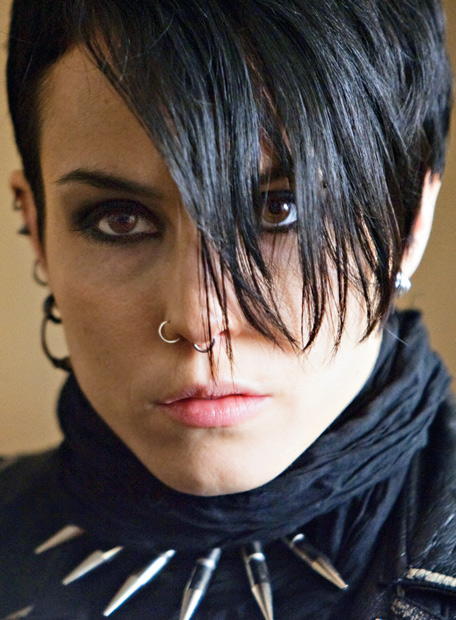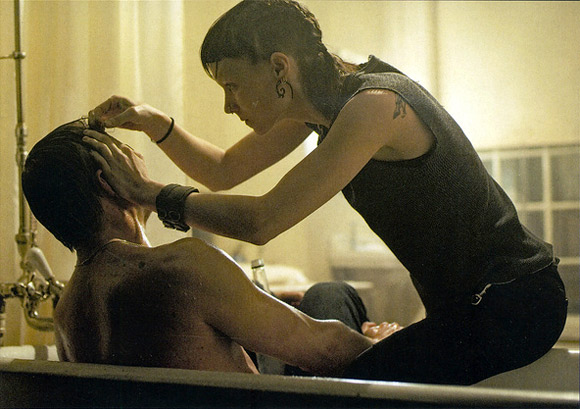So my wife and I are streaming Skyfall—which, to our mutual surprise, was her idea not mine–and M is explaining to her jury of clueless politicos why they shouldn’t gut her antiquated, Cold War, killer spy agency. Why, in other words, does the 21st century still needs good ole 007? I’m no Judi Dench (or Neal Purvis, Robert Wade, or John Logan, the screenwriters), but the argument goes something like this:
Shadows are bad.
Shadows are everywhere.
Only a man of the shadows can fight the shadows.
So this is a job for Bond, James Bond.
And I thought: Haven’t I heard this before? Not in defense of the CIA—which, British accented or not, that’s all 007 is. No, it’s an older argument, older than the Cold War. This is gunslinger logic.
Let me call Westerns scholar Richard Slotkin to the microphone. He knows a few things about shadows too:
“Through this transgression of the borders, through combat with the dark elements on the other side, the heroes reveal the meaning of the frontier line (that is, the distinctions of value it symbolizes) even as they break it down. In the process they evoke the elements in themselves (or in their society) that correspond to the ‘dark’; and by destroying the dark elements and colonizing the border, they purge darkness from themselves and the world.”
Yep. James is a cowboy. He packs a Walther PPK instead of a revolver, and rides a Bentley, not a stallion, but even in Daniel Craig’s metrosexually tight suit and tie, he’s the same as any badass sheriff policing his corner of oblivion.
The weird thing though—London’s not exactly a frontier burgh. In terms of imperial domains, it’s the flat dab middle. Not Dodge, but the Metropole. What Superman fans call Metropolis.
So what’s all this shadowy borderland talk? How can James, or any contemporary urban hero, draw superpowers from a mythically wild West?
I recently stumbled onto an answer in Peter Turchin’s Historical Dynamics. (Which I checked out of my library after tracking down a citation in Alex Mesoudi’s Cultural Evolution, the tome one of the economists in my book club has us reading. I wanted Colson Whitehead’s literary zombie novel but got vetoed. Maybe next month.) Turchin is an historian and ecologist, which doesn’t really explain all of his mathematical formulas and wave charts, but I think I pretty much follow the gist of his “Metaethnic Frontier Theory.”
My ridiculously simplistic version: empires need frontiers. It’s where group solidarity comes from. Why, as Turchin shows, do empires consistently rise from frontier regions, and very rarely from non-frontiers? Because Metropolis is a den of in-fighting, a spreadsheet of special interest groups vying for attention. Border towns don’t have such luxury. They’ve got all those swarthy aliens swarming right outside their fort gates. The shadows keep everyone in line.
“Internally divisive issues,” explains Turchin, “will eventually destroy the asabiya”—that’s academic speak for ‘collective action’—“of the large group, unless it is ‘disciplined’ by an external threat.”
Thus Ms. Dench’s shadows-are-everywhere speech. If you want your group to stay a group, you have to scare them. That’s easy when they’re camped at the edge of the abyss, but for these big city types, you got to drag the shadows right up to their condo doorsteps.
That’s how you keep an agency funded or, for Hollywood, your franchise breathing. 007 is an obsolete Cold Warrior, but product name recognition trumps the collapse of Soviet communism. Superman shouldn’t have made it past Dresden, let alone Hiroshima. He sold comics because he embodied the collectivism of a nation scared shitless by the Axis threat. Like any gunslinger or shadow-fighting shadow man, his powers are alien, a product of a scifi frontier. Remove the threat and he’s just some guy in tights and a cape.
When Ian Fleming published his first Bond novel in 1953, comic book superheroes were all but extinct. When Sean Connery debuted in the first Bond film in 1962, superheroes were back and atomic-powered. Although gunslingers seem extinct at the moment, shadow Men of Steel are still flying and homicide-licensed agents keep sipping their dark martinis.
I would never accuse the U.S. entertainment industry of anything but dividend-driven capitalism, but they’re still producing a form of red, white and blue propaganda. They want our money, and the best way to get it is to keep reinventing not our heroes but the threats that keep our heroes kicking. Hollywood’s main products are bite-sized shadows imported from our psychological borderlands. Our heroes have to scare us before they can soothe us.
But there’s a another byproduct too. Turchin’s group cohesion. Stream Skyfall or skim this month’s Action Comics, and you’re going to feel just a tiny bit more, well, American. Empires collapse when their centers splinter. That’s bad for business. In a nation of special interests, buying movie tickets is one of our few collective actions. For good and bad, James and Clark keep the metrosexual masses not just entertained but disciplined.



